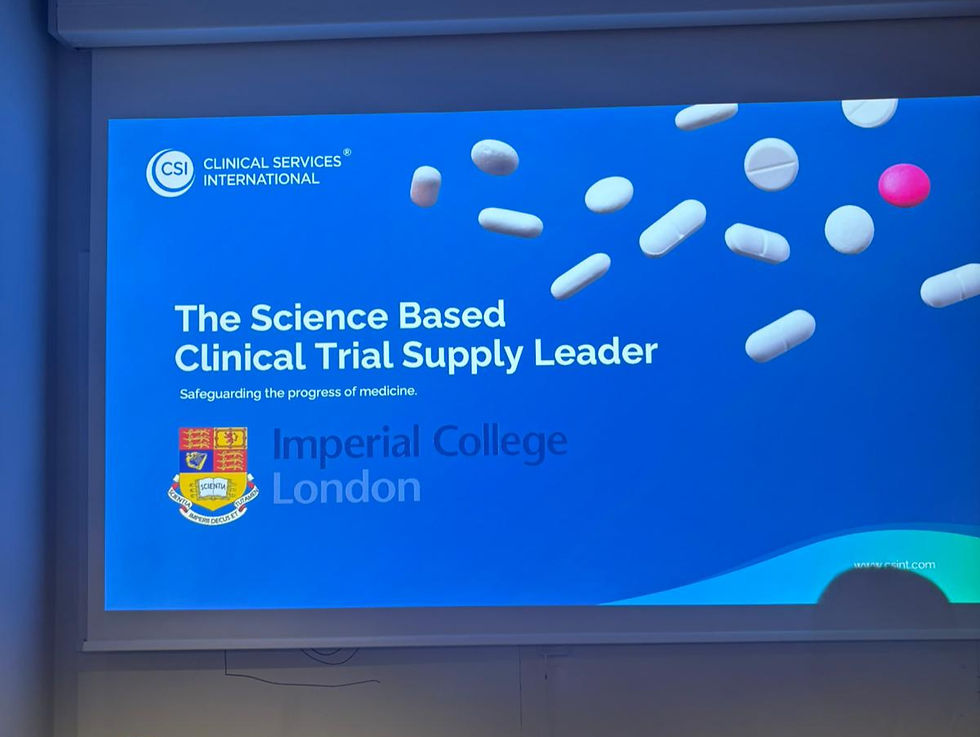Blockbuster Oncology Products in Clinical Trial Supplies
- Vanessa Dekou

- Nov 21, 2020
- 3 min read
Updated: Nov 20, 2025
Oncology products monopolise the list of best-selling drugs. With a huge range of indications that is only growing, therapies become more specific to tumour or cell pathologies and increasing patient numbers. Several oncology products now have ‘blockbuster’ status where sales exceed $1 billion annually.
This is relevant for clinical trials as more regulators require evidence of efficacy in comparison to the standard of care, which is likely to be one of the blockbuster products. A significant proportion of the late-stage clinical trial pipeline is in oncology indications as immunotherapies and next-generation biotherapeutics are gearing up for approval. This means that sponsors are having to fork out for these blockbuster products in order to run their trials more often.

Keytruda (Pembrolizumab) and Opdivo (Nivolumab)
Number 2 and number 11 respectively in annual sales of oncology products are Merck’s Keytruda ($7.2B) and BMS’s Opdivo ($1.8B). They are both checkpoint inhibitors targeted towards Programmed cell Death protein 1 (PD-1 inhibitors) that is responsible for downregulating the immune system that prevents the immune system from killing cancer cells. As both products target the same pathway, they naturally compete in many indications (Table 1).
Keytruda | Opdivo |
Melanoma | Melanoma (in combination with Yervoy) |
Non-small cell lung cancer (as monotherapy and combination) | Non-small cell lung cancer |
Urothelial carcinoma | Urothelial carcinoma |
Classical Hodgkin lymphoma | Classical Hodgkin lymphoma |
Head and neck squamous cell carcinoma | Squamous cell cancer of the head and neck |
| Advanced renal cell carcinoma (in combination with Yervoy) |
This means for many therapies, it is the physician’s choice whether to use Opdivo (often in combination with Yervoy) or Keytruda. Keytruda has been more successful in part due to its higher efficacy among all groups and reduced toxicity. Both of these products are incredibly popular in clinical trials; a search on clinicaltrials.gov shows that there are 783 studies recruiting using Keytruda and 707 for Opdivo.
Herceptin (Trastuzumab) and Mabthera (Rituximab)
Roche’s Herceptin and Mabthera come in at number 3 and 5, selling $7B and $6.8B respectively. They are highly effective therapies for HER-2 positive breast cancer (Herceptin) and Non-Hodgkin’s Lymphoma (Mabthera), two of the most common and widely treated cancers.
However, the financial success of these products is under threat. Biosimilars are increasingly becoming the standard of care and both have several licensed biosimilar drugs (e.g. Celltrion’s Herceptin biosimilar – Truxima). As more trials show equivalency in outcomes between the branded and biosimilar product, more purchasers will choose the cheaper option.
On clinicaltrials.gov, there are 246 recruiting studies with Trastuzumab and 415 with Rituximab; a growing proportion of them will choose the biosimilar. No product is safe from the encroachment of biosimilars, #4 (Roche’s Avastin – $6.8B) is also under threat as Amgen’s Mvasi has been approved by the Food and Drug Administration (FDA).
As these blockbuster products continue to increase their market share and more trials are running globally utilising these products, sourcing them has become a hugely important part of a successful clinical trial. All the products mentioned come at a significant cost, running into the thousands per dose. It makes sense then to partner with an expert in sourcing to ensure the most efficient, risk-free, and cost-effective solution possible.
Clinical Services International is a trusted partner of leading Pharmaceutical and Biotechnology Companies, Clinical Research Organisations, and Contract Manufacturing Organisations. We are experts in sourcing licensed and unlicensed medicines for use in trials, ranging from eye drops to the most sought-after blockbuster therapies.




.png)
Comments